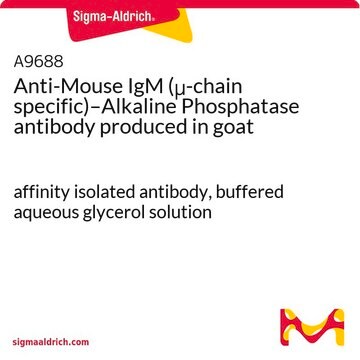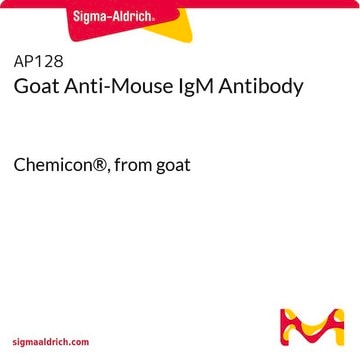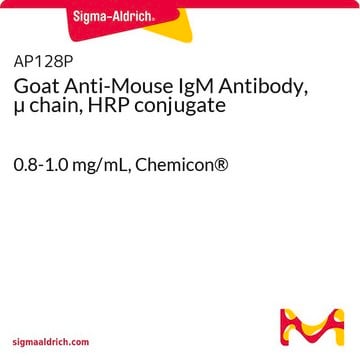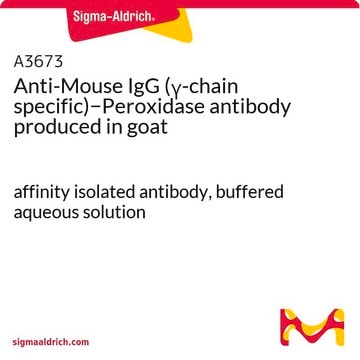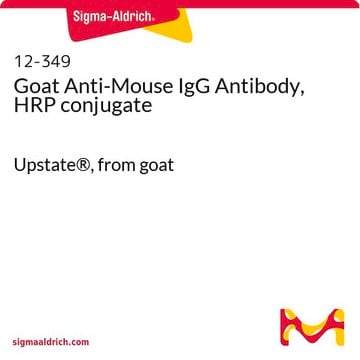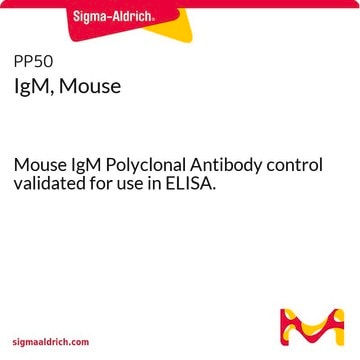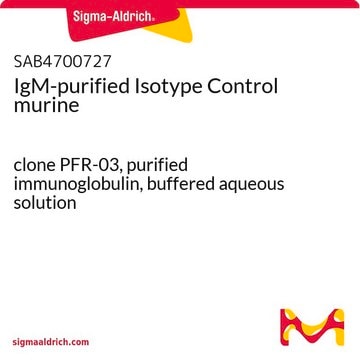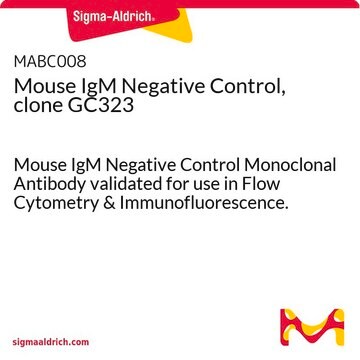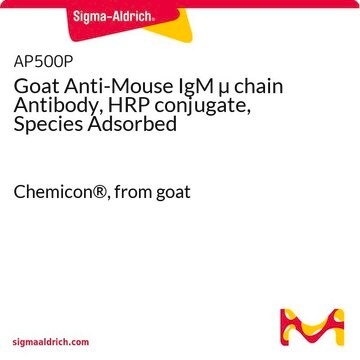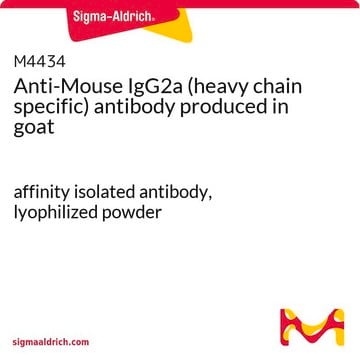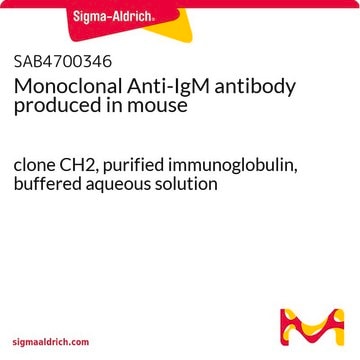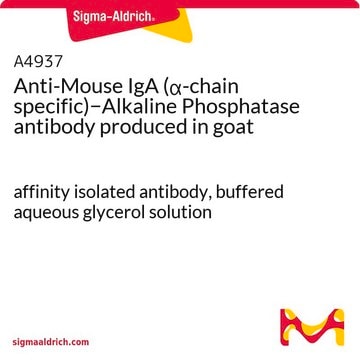M8644
Anti-Mouse IgM (μ-chain specific) antibody produced in goat
affinity isolated antibody, lyophilized powder
Synonym(s):
Goat anti-mouse IgM
About This Item
Recommended Products
biological source
goat
Quality Level
conjugate
unconjugated
antibody form
affinity isolated antibody
antibody product type
secondary antibodies
clone
polyclonal
form
lyophilized powder
technique(s)
indirect ELISA: suitable
storage temp.
2-8°C
target post-translational modification
unmodified
Looking for similar products? Visit Product Comparison Guide
Related Categories
General description
Immunoglobulin M (IgM) antibodies appear early in the course of infections. IgM antibodies are responsible for agglutination of red blood cells in mis-matched blood transfusions. The level of IgM may vary with the status of disease or infection.
Specificity
Application
Chromatin immunoprecipitation (1 paper)
Enzyme-linked immunosorbent assay (1 paper)
Physical form
Reconstitution
Disclaimer
Not finding the right product?
Try our Product Selector Tool.
Storage Class Code
13 - Non Combustible Solids
WGK
WGK 1
Flash Point(F)
Not applicable
Flash Point(C)
Not applicable
Personal Protective Equipment
Choose from one of the most recent versions:
Certificates of Analysis (COA)
Don't see the Right Version?
If you require a particular version, you can look up a specific certificate by the Lot or Batch number.
Already Own This Product?
Find documentation for the products that you have recently purchased in the Document Library.
Customers Also Viewed
Our team of scientists has experience in all areas of research including Life Science, Material Science, Chemical Synthesis, Chromatography, Analytical and many others.
Contact Technical Service
